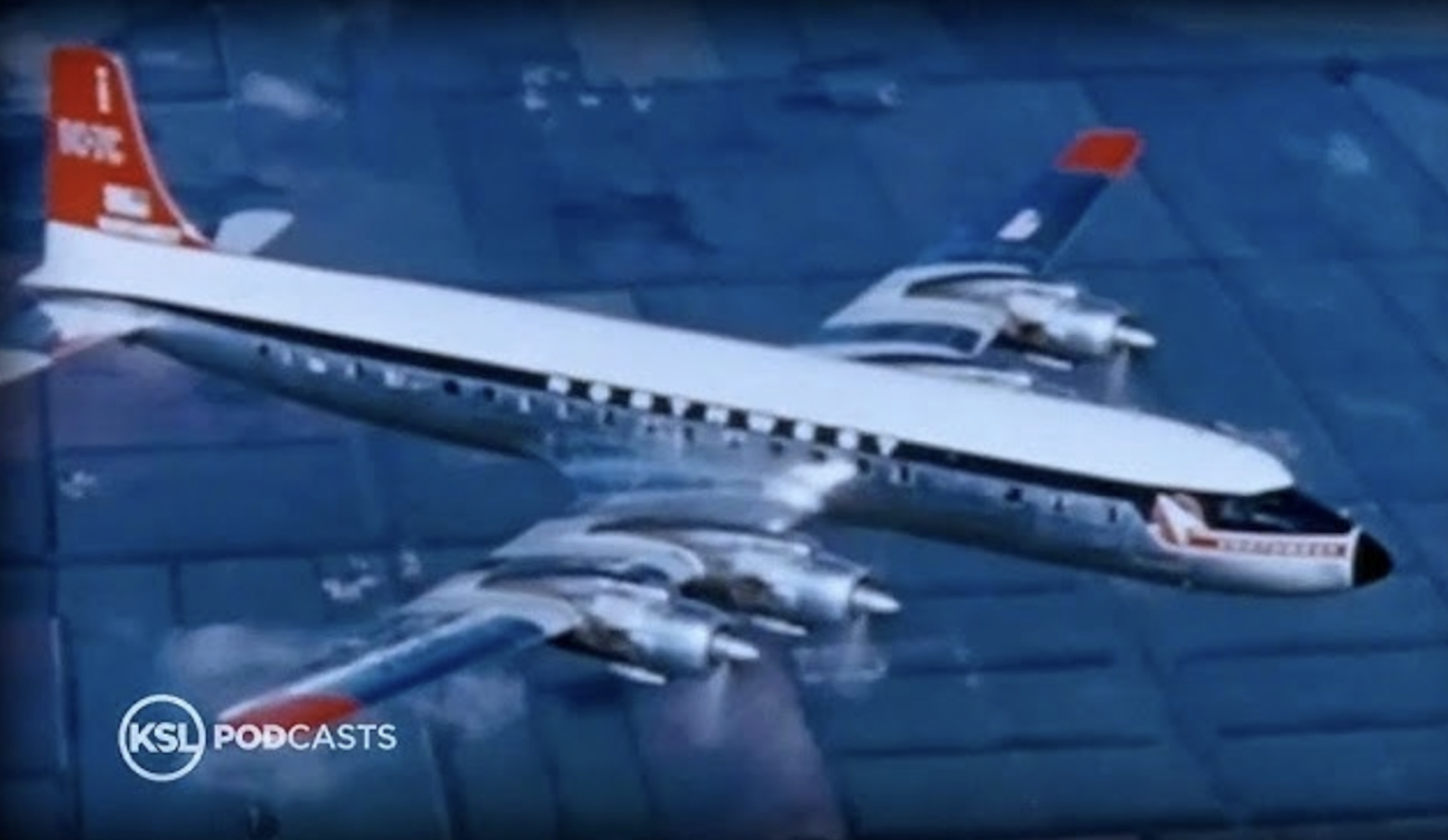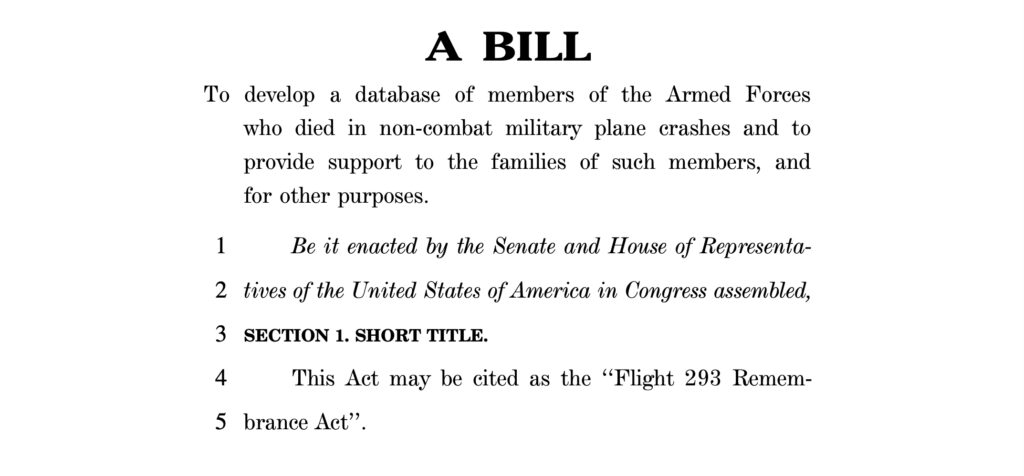
Unsolved Histories: What Happened to Flight 293? has inspired creation of bipartisan bills in the U.S. House and Senate. If passed, the new legislation would finally recognize and support the families of hundreds of military members missing on dozens of non-combat military plane crashes since World War II. The inaugural season of the podcast focuses on an airliner which disappeared between Seattle and Anchorage in 1963 while carrying 58 active duty members of the military.
Bipartisan bill with roots in Washington State and Alaska
On Thursday, February 6, 2025, Senator Patty Murray (D-WA) and Senator Dan Sullivan (R-AK) introduced the Flight 293 Remembrance Act. Senator Murray is a senior member and former chair of the Senate Veterans’ Affairs Committee, while Senator Sullivan is a member of the Senate Armed Services Committee. The partnership makes sense, since Flight 293 originated in Washington State and was headed for Alaska when it went down. Companion legislation was also introduced in the U.S. House by Representative Marilyn Strickland (D, WA-10), a member of the House Armed Services Committee whose district encompasses Joint Base Lewis-McChord, the base from which Flight 293 departed.
“For far too long, the U.S. government has treated the families of servicemembers who went missing in non-combat plane crashes differently—denying them the communication, acknowledgement, and public support that other families of missing servicemembers receive,” said Senator Murray in a press release.

The Flight 293 Remembrance Act has already been endorsed by national organizations supporting military veterans, including Tragedy Assistance Program for Survivors (TAPS), National Military Family Association (NMFA), and Military Officers Association of America (MOAA).
The inaugural season of the Unsolved Histories podcast, which was released in October 2024, tells the story of Flight 293, a civilian airliner which was chartered by the U.S. military and which crashed into the Gulf of Alaska on June 3, 1963. The Northwest Airlines DC-7C took off from McChord Air Force Base in Pierce County and was headed to Elmendorf Air Force Base in Anchorage, Alaska when it ran into trouble. All 101 aboard were killed, and the cause of the crash was never determined.
Perhaps worst of all, no bodies were ever recovered. In the aftermath of the tragedy, surviving loved ones of the 58 active duty servicemembers on board Flight 293 were essentially forgotten because of Defense Department policies, and have been ever since. For many families, closure has been difficult or impossible.
Critical assistance from Tonja Anderson-Dell
With critical assistance from Tonja Anderson-Dell, the Flight 293 podcast highlighted the systemic disparities between how families of “Missing in Action” service members are treated in comparison to Flight 293 families and other families of those lost under similar non-combat circumstances.
Anderson-Dell, whose grandfather was lost on a similar military flight in Alaska in 1952, has been working to recognize and support these forgotten families for 25 years. She founded a non-profit called Honored Bound to document the dozens of missing aircraft and advocate for families of those missing.
“I’m really at a loss for words,” said Anderson-Dell when she learned of the legislation. “I’m just happy that a senator actually listens. I’m speechless.”
“This is fantastic news,” said Greg Barrowman, who lost his 17-year-old brother, U.S. Army Private Bruce Barrowman, on Flight 293. Barrowman has led efforts to commemorate Flight 293, including a private fundraising campaign that resulted in privately-funded monument dedicated at Tahoma National Cemetery on the 60th anniversary of the crash.

Senator Patty Murray: Committed to passing Flight 293 Remembrance Act
According to a press release from Senator Murray’s office:
“Since World War II, hundreds of military personnel have been classified as ‘Missing Not In Action’ (M-NIA) following non-combat plane crashes—and unlike the families of those classified as “Missing in Action” (MIA), who receive regular updates from the Department of Defense (DoD) and invitations to remembrance events, M-NIA families have long been left unsupported and excluded from these resources. The lack of a formal recognition system for M-NIA servicemembers has resulted in these families being denied the public acknowledgment, memorials, and support services they deserve. The bipartisan Flight 293 Remembrance Act seeks to correct these disparities by ensuring that the sacrifices of M-NIA servicemembers are properly recognized, their families receive essential support, and they are included in remembrance efforts.”
“It’s long past time to fix this and at least provide federal recognition for families who lost loved ones in tragic accidents like Flight 293,” Senator Murray said.
“Our legislation would ensure that the service of our fallen heroes is commemorated and that their families receive the recognition and assistance they deserve,” Senator Murray continued. “I’ll be working hard to get this commonsense bipartisan solution across the finish line.”